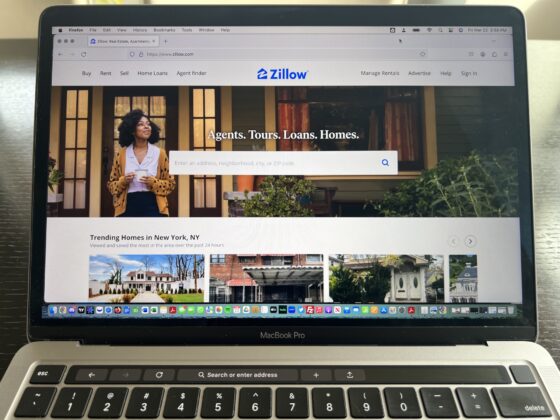Table of Contents Show
Selling a home in New York City can be a complex process, especially in a market as competitive and diverse as NYC. Whether dealing with townhouses, single-family homes, condos, or co-ops, choosing the best offer is crucial to ensure a successful and financially beneficial transaction. In this extended article, we’ll explore the key factors you should consider when evaluating offers for your property in NYC, focusing on co-ops and the importance of post-closing liquidity and financial statements for board approval.
Understanding Your Property’s ValueUnderstanding Your Property’s Value
Before diving into evaluating offers, it’s essential to have a clear understanding of your property’s market value. This requires thorough research and, ideally, the assistance of a qualified real estate agent or appraiser. NYC’s real estate market can fluctuate, so relying on outdated or incomplete information may lead to unrealistic expectations or missed opportunities.
To determine your property’s value, analyze recent sales data of similar properties in your neighborhood. Consider location, size, condition, and unique features that may influence the price. Look at both active listings and recently sold properties to gauge current market trends. A comparative market analysis (CMA) can provide valuable insights into the fair market value of your home.
Reviewing the Offer PriceReviewing the Offer Price
The offer price is often the first and most apparent factor when evaluating offers. Naturally, a higher offer can be enticing, as it may lead to a higher profit for you as the seller. However, looking beyond the number and considering the entire offer package is essential.
Consider the buyer’s downpayment, demonstrating their commitment to the purchase. A substantial downpayment indicates that the buyer is serious about the transaction and genuinely interested in closing the deal.
Consider any contingencies, concessions, or other terms impacting the offer’s net value. For example, a higher offer may have several contingencies that could delay or jeopardize the closing process. On the other hand, a slightly lower offer with minimal contingencies might lead to a smoother and more predictable closing.
Financing Terms MatterFinancing Terms Matter
Buyers can finance their purchases through various means, such as traditional mortgages, cash payments, or unconventional financing options. An all-cash offer might seem appealing, as it eliminates the risk of financing falling through. However, a well-qualified buyer with a solid pre-approval from a reputable lender can be just as reliable.
Consider the loan type and the lender’s reputation if the buyer obtains a mortgage. Some loan types may involve more stringent appraisal and inspection requirements, potentially leading to delays or negotiations. A pre-approved buyer provides some assurance that they have undergone initial financial vetting and are more likely to secure financing successfully.
Evaluating ContingenciesEvaluating Contingencies
Contingencies are conditions that must be met for the sale to proceed. Typical contingencies include home inspections, appraisals, and mortgage approval. Fewer contingencies can indicate a more serious buyer committed to the purchase. However, certain contingencies, like the need for a home inspection, are often standard and shouldn’t be seen as red flags.
A professional home inspection is a critical aspect of the home-buying process. It helps identify any underlying issues with the property that the buyer might not be aware of. You can confidently accommodate a home inspection contingency if your property is well-maintained and in good condition.
Analyzing Post-Closing Liquidity and Financial Statements for Co-op OffersAnalyzing Post-Closing Liquidity and Financial Statements for Co-op Offers
When selling a co-op, you must consider the buyer’s financial qualifications beyond the initial offer. Co-op boards typically require prospective buyers to meet specific financial criteria to gain approval. They often look for a certain debt-to-income ratio, post-closing liquidity, and a strong financial statement to ensure the buyer can handle the financial responsibilities of co-op ownership.
Post-closing liquidity refers to the buyer’s available cash or easily convertible assets after the purchase. A healthy post-closing liquidity of 12-24 months of maintenance and mortgage payments demonstrates that the buyer has enough funds to cover unforeseen expenses, maintenance fees, and any other financial obligations that may arise. Co-op boards may differ on the amount required and want to ensure that a buyer won’t face financial strain after the purchase, potentially leading to difficulties in paying maintenance fees or special assessments.
The financial statement gives insight into the buyer’s financial health, including income, assets, and debts. Solid financial information reflects a stable financial background, which can enhance the likelihood of board approval. Co-op boards often require buyers to submit comprehensive financial disclosures, including tax returns, bank statements, and proof of income.
To ensure a smooth co-op sale, requesting a submitted offer form and communicating with potential buyers about the co-op board’s requirements early in the process is crucial. This way, you can identify serious and qualified buyers with a higher chance of obtaining board approval.
Reviewing the Buyer’s Background and IntentionsReviewing the Buyer’s Background and Intentions
When selling a property, especially in co-op buildings, it’s essential to consider the buyer’s background and intentions. Co-op buildings often have specific rules and regulations that owners must follow to maintain a harmonious community. Co-op boards may prioritize candidates who plan to use the apartment as their primary residence and not allow for investment property or pied-à-terre.
Buyers who intend to live in the property as their primary residence may be more invested in the community and more committed to building rules and regulations. Conversely, an absentee owner might not have the same level of attachment to the building and might be more inclined to prioritize rental income over community engagement.
Additionally, a buyer with a history of problematic behavior or legal issues may raise concerns for co-op boards. Co-op buildings often conduct background checks on prospective buyers to ensure they have a clean record and are suitable for membership in the cooperative community.
Comparing Proposed TimelinesComparing Proposed Timelines
The timeline proposed by the buyer can significantly impact your decision. If you need to sell your property quickly, a faster closing date offer might be more attractive, even if the price is slightly lower. Conversely, a more extended closing period may be preferable if you need more time to find a new home or for other personal reasons.
Consider any potential overlap between your closing date and your moving-out date. You might need time to relocate to your new home or belongings. Negotiating the closing timeline can help you align the sale of your current property with your future plans.
Seeking Professional AdviceSeeking Professional Advice
Real estate transactions can be complex, especially in NYC, with unique regulations and requirements. Working with a qualified real estate attorney and experienced real estate agent to guide you through the process, negotiate on your behalf, and ensure that all legal and contractual aspects are handled correctly is highly advisable.
A reputable real estate agent will deeply understand the NYC market and can help you navigate the complexities of evaluating offers and negotiating terms. An experienced attorney will review the contract, protect your interests, and ensure the transaction complies with all relevant laws and regulations.
Cash OffersCash Offers
Cash offers can be particularly appealing to sellers in the NYC real estate market. Buyers who make an all-cash offer have the funds readily available to purchase the property without relying on a mortgage loan. Cash offers are enticing for several reasons. First, they eliminate the risk of the deal falling through due to financing issues, which can be common with mortgage-dependent transactions. As a seller, this offers a sense of security and assurance that the sale will likely close smoothly and on time.
Cash offers often come with a quicker closing timeline since there’s no need for mortgage approval or the appraisal process. However, it’s essential to thoroughly vet cash buyers as well, as even though they may not be reliant on financing, you still want to ensure they have the financial means and stability to complete the transaction successfully. In addition, be able to provide reference letters and a transparent financial statement for a co-op or condo.
Final ThoughtsFinal Thoughts
Choosing the best offer for your home in NYC is a critical decision that requires careful consideration of various factors, including offer price, financing terms, contingencies, buyer background, and intended use. Post-closing liquidity and a strong financial statement become even more crucial for board approval when dealing with co-ops and condos.
By understanding the nuances of each offer and thoroughly evaluating all relevant aspects, you can make an informed decision that aligns with your goals and priorities as a seller. Remember that the highest offer may not always be the best one, and sometimes, a lower offer with more favorable terms and a well-qualified buyer can lead to a smoother and more successful transaction.







